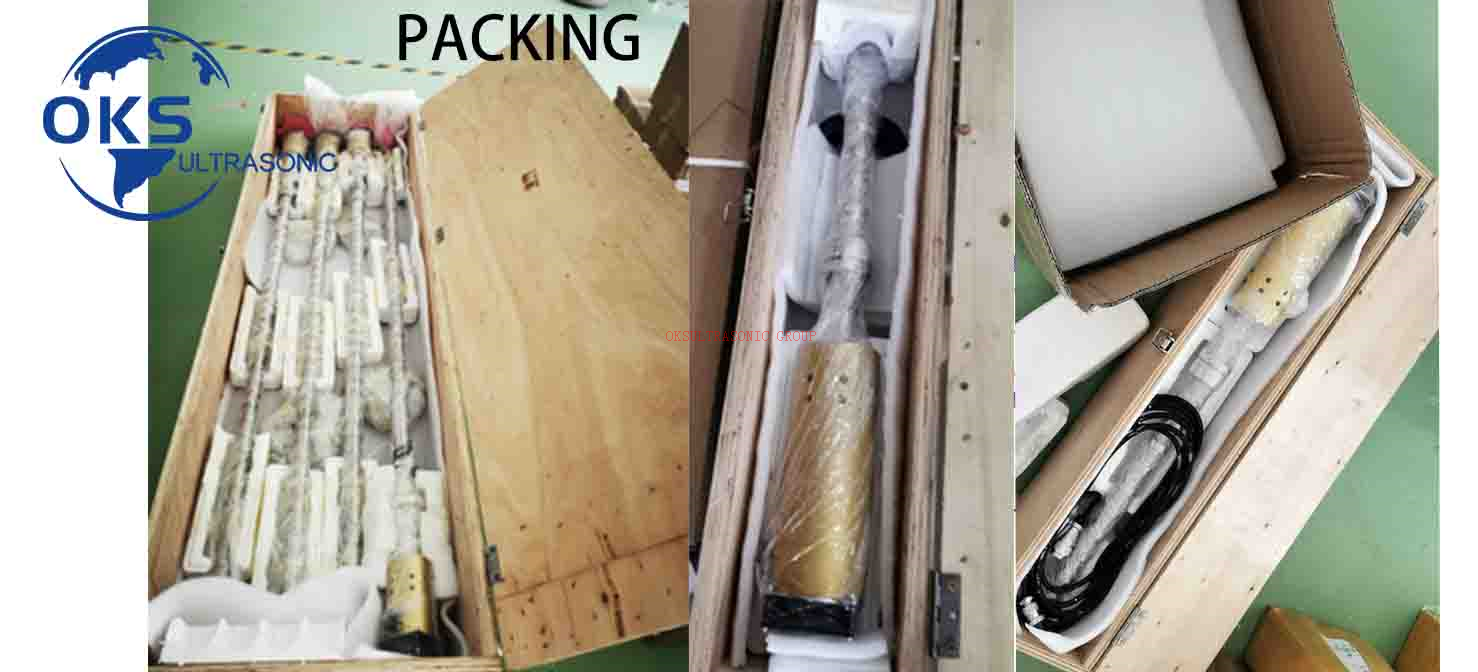1、frequency range:19-21khz 2、usually frequency:20kHz 3、unit power:1000W、1100w,1200w,1300w ,1500W、2000W,also can be used for parallel connection 4、Head tool material:Titanium 5、Ultrasonic vibration parts size: Φ24-53*(505-1071)mm
6、Ultrasonic vibration parts weight:12 kg 7、 Driver: analog power, power supply, frequency control type of automatic tracking, flowing pressure protection, adjustable power size. 8 、Driving power typical size:350×250×120mm Environment temperature: 0-40C° Relative humidity: 40%--90% Working frequency: 19-21KHz5% Time control: 0—59 minutes 59 seconds Range of power control: 0-100% digital control and adjustment of 16 grades Internal overtemperature protection: 65 C° Outer size: L x W x H = 300 x 360 x 150mm
Type
Frequency
(KHz)
Material
Ultrasound
Output(W)
Total Length
(mm)
Diameter
(mm)
OKS-300TA505
20khz
Titanium
300W
505mm
Φ50-40
OKS-600TA587
20khz
Titanium
600W
587mm
Φ50-40
OKS-900TA628
20khz
Titanium
900W
628mm
Φ50-40
OKS-1500TA814
20khz
Titanium
1500W
814mm
Φ32-40
OKS-2000TA1071
20khz
Titanium
2000W
1071mm
Φ24-53
We welcome size customization, we make according to your requirements!
Working frequency 20kHz 20kHz 20kHz 20kHz Max power 500W 1000W 1500W 2000W Handling capacity L/h ≤500 ≤800 200-1000 300-1600 Apply laboratory Production line,can be used in combination reaction tank 15L,20L,35L,stainless steel allow pressure max≥5 MPa allow temperature max≥350℃
Compared with the traditional ultrasonic vibrating plate, it has the characteristics of wider application range and longer service life. In industrial applications,
the use of ultrasonic vibrating rods for dispersion, extraction, cleaning, chemical reactions, water treatment, etc., is a very mature and widely used technology. Extremely flexible
Performance characteristics: 1. Suitable for various high-power industrial liquid treatments, such as homogenization, emulsification, dispersion, depolymerization and wet milling (particle size reduction),
cell disruption and disintegration, extraction, degassing and sonochemical processes; 2. Heavy-duty continuous work for 24 hours, industrial design, external PLC remote control, automatic frequency search and matching; Market application: *Chinese medicine extraction: refers to the ultrasonic pulverization (crushing) of Chinese medicine cells to achieve high-efficiency extraction of useful substances.
Compared with conventional extraction technology, ultrasonic assisted extraction has the characteristics of fast, cheap, efficient, safe, low cost, and wide application range. * Biodiesel production: The use of ultrasonic emulsification to produce a biomass oil-diesel mixed emulsion is actually to disperse the biological oil droplets into another immiscible diesel fluid.
Compared with other technologies, the prepared droplets have fine dispersion, narrow distribution, high efficiency, good dispersion effect, and can increase the stability of the emulsion. * Ultrasonic marine life prevention: It is based on the cavitation effect of ultrasound. When the tiny bubble nucleus in the liquid is activated under the action of ultrasound,
it manifests as a series of dynamic processes such as bubble oscillation, growth, contraction and collapse.
The bubbles in the liquid generate hundreds of atmospheres and thousands of degrees Celsius at the moment of bursting, which can quickly peel off the attachments of marine organisms,
crush the epidermal cells of marine organisms, and achieve the purpose of sea defense. biology. * Ultrasonic catalysis: The application of ultrasound to the catalytic reaction process can simulate the high-temperature and high-pressure reaction in the reactor on a microscopic scale,
providing a very special physical and chemical environment for catalytic reactions that are difficult or impossible to achieve under normal conditions.
The catalytic reaction can be carried out in a milder environment. It can further increase the reaction speed, shorten the reaction time,
and increase the yield of the target product. The main applications include metal surface catalysis, phase transfer catalyzed reactions and enzyme catalyzed reactions. * Sewage treatment: In the process of sewage treatment, ultrasonic cavitation has a strong ability to degrade organic matter, and the degradation speed is very fast,
which provides the possibility to degrade harmful organic matter in the water, so as to achieve the purpose of ultrasonic sewage treatment. * Ultrasonic dispersion: refers to the process of dispersing and deaggregating particles in the liquid through the "cavitation" effect of ultrasonic waves in the liquid using liquid as the medium.
Ultrasonic dispersion can be divided into emulsion dispersion (liquid-liquid dispersion) and suspension dispersion (solid-liquid dispersion), and has been used in many fields.
The application of ultrasonic in suspension dispersion includes the dispersion of titanium oxide in water or solvent in the coating industry, the dispersion of dyes in molten paraffin;
the dispersion of drug particles in the pharmaceutical industry, and the dispersion of powder emulsions in the food industry.
Ultrasonic Homogenizing /Emulsification Ultrasonic Reactors/Ultrasonic Emulsification Reactor
Ultrasonic vibrating rods are also called ultrasonic vibrating rods. Compared with traditional ultrasonic vibrating plates, it has the characteristics of wider application range and longer service life. In industrial applications, the use of ultrasonic vibrating rods for cleaning, extraction, chemical reactions, scale prevention, water treatment, etc. is a very mature and widely used technology.
Key technology information:
Specification
Introduce
The ultrasonic reactor is mainly composed of an ultrasonic transducer, an ultrasonic horn, an ultrasonic cutter head and an ultrasonic drive power supply.
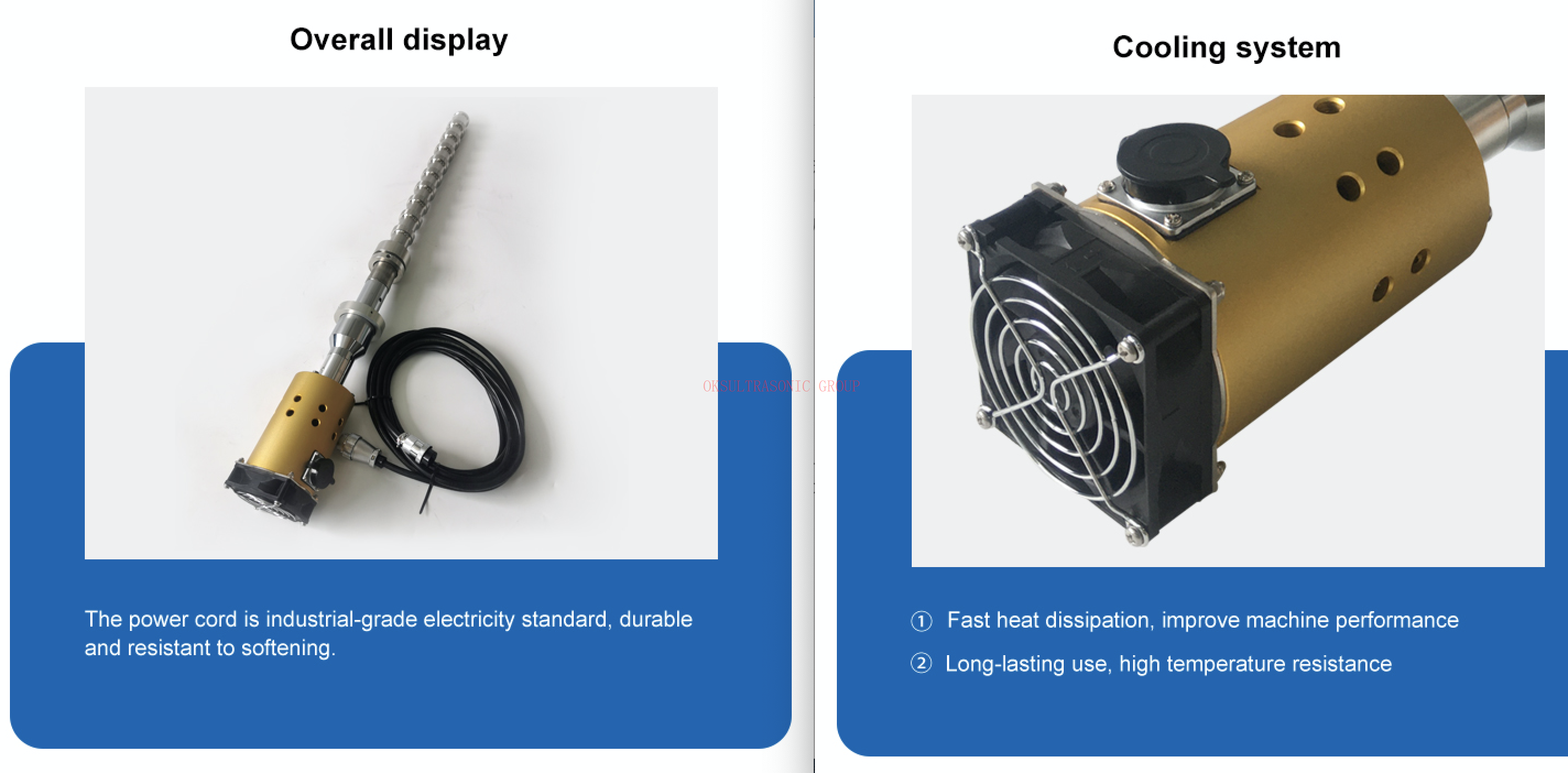
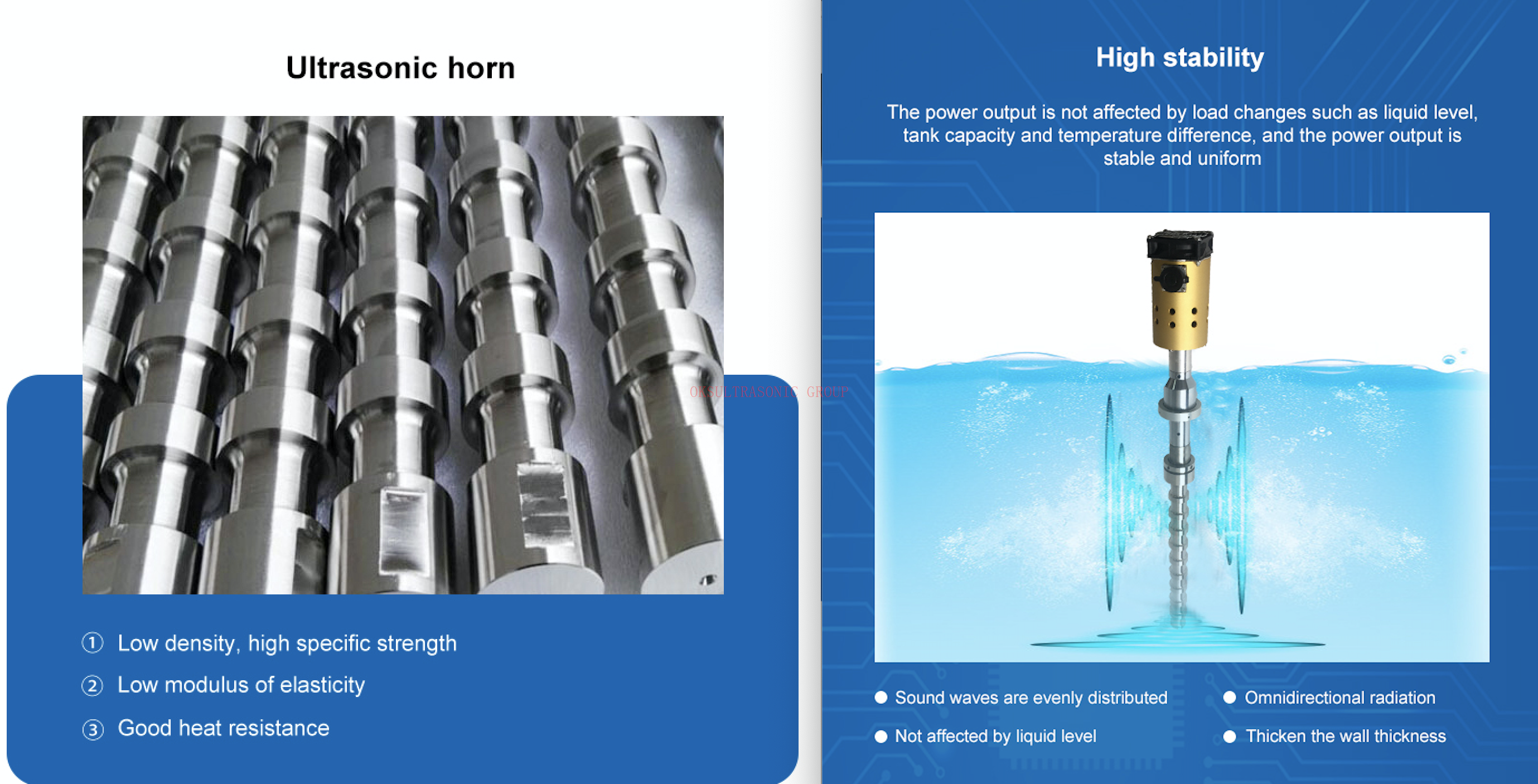
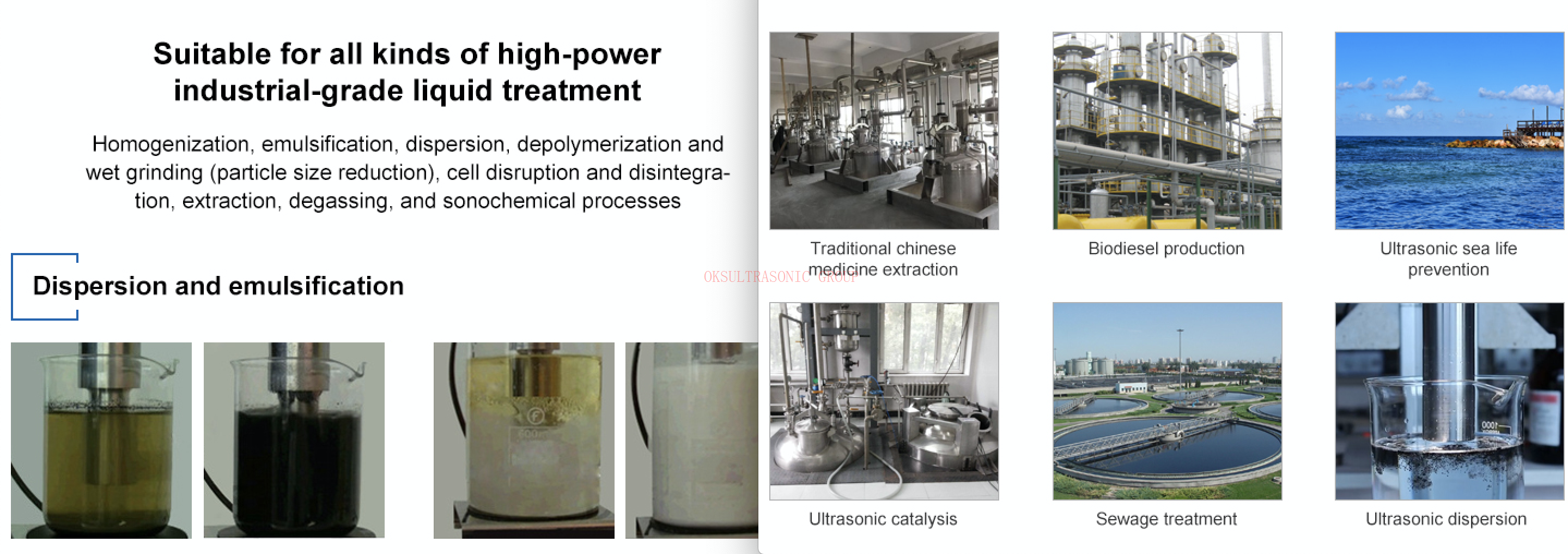
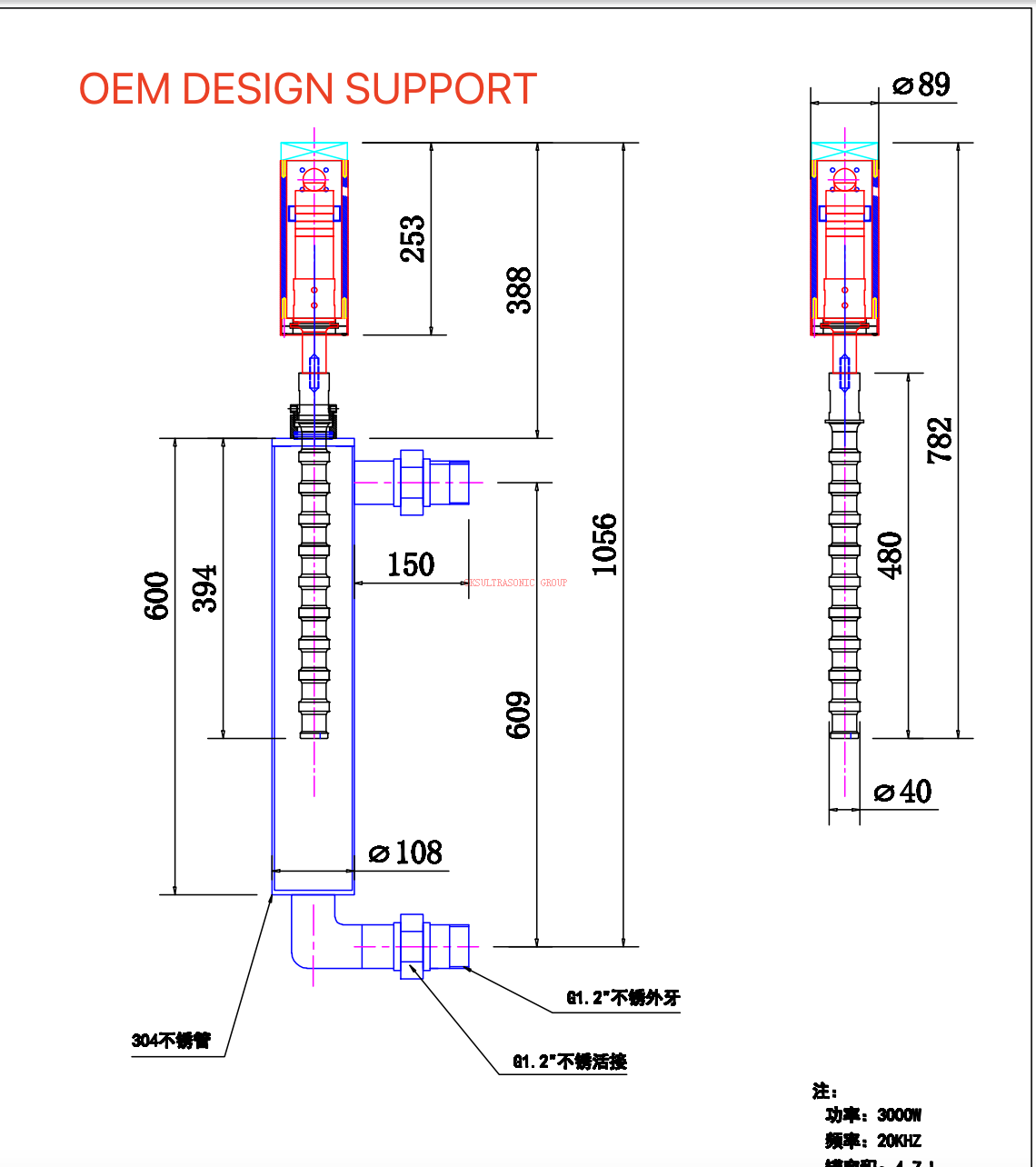
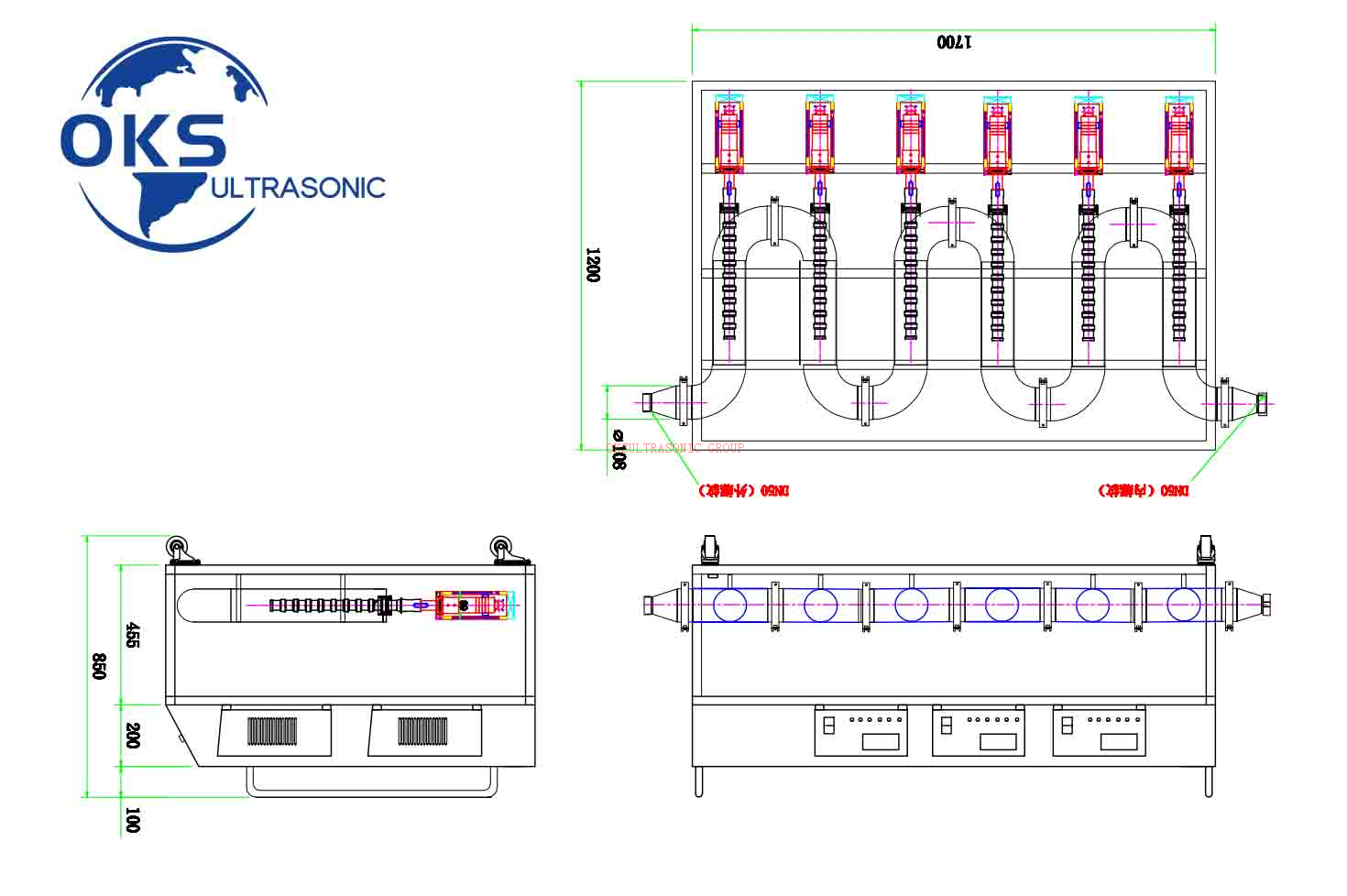
Related Product
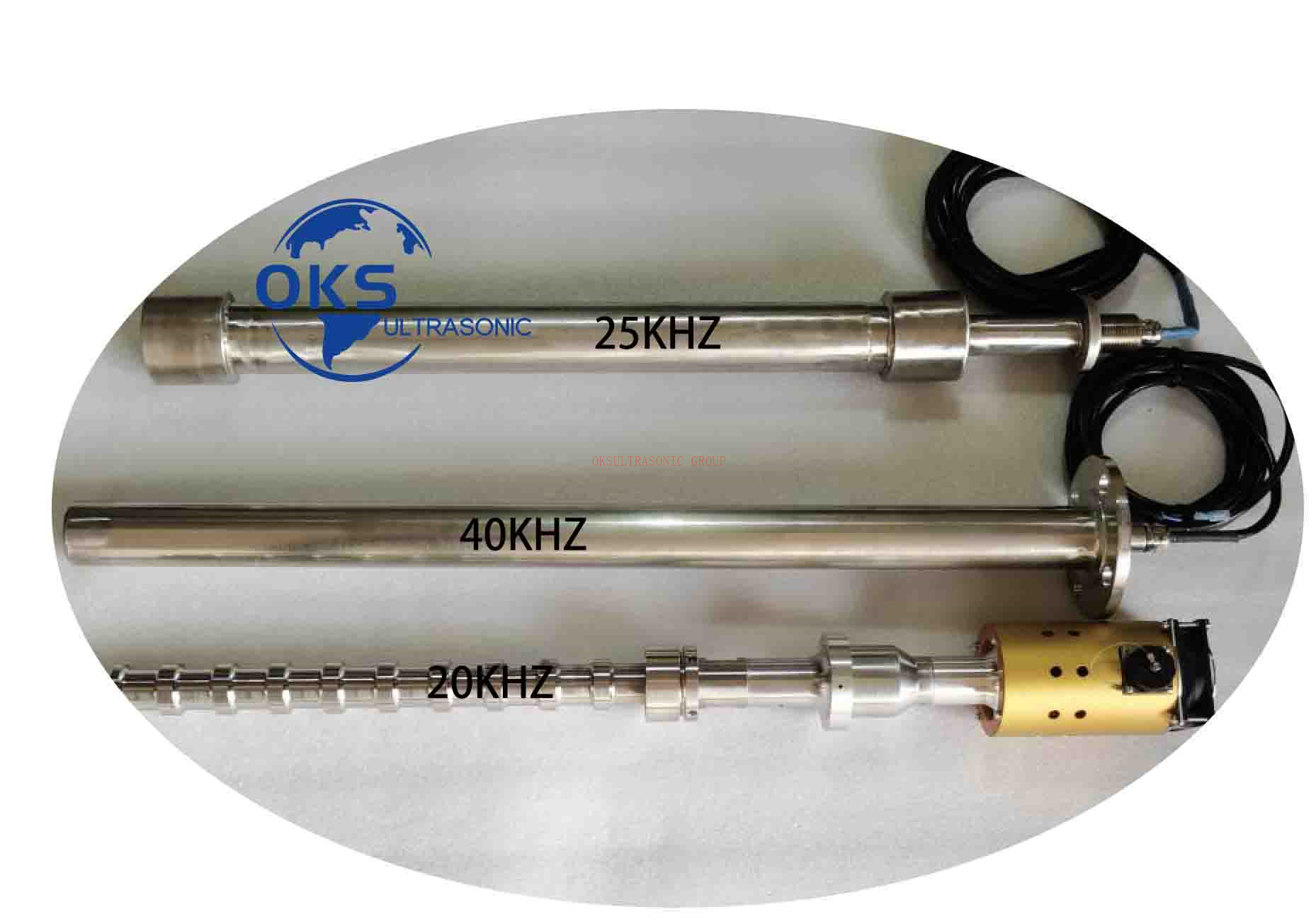
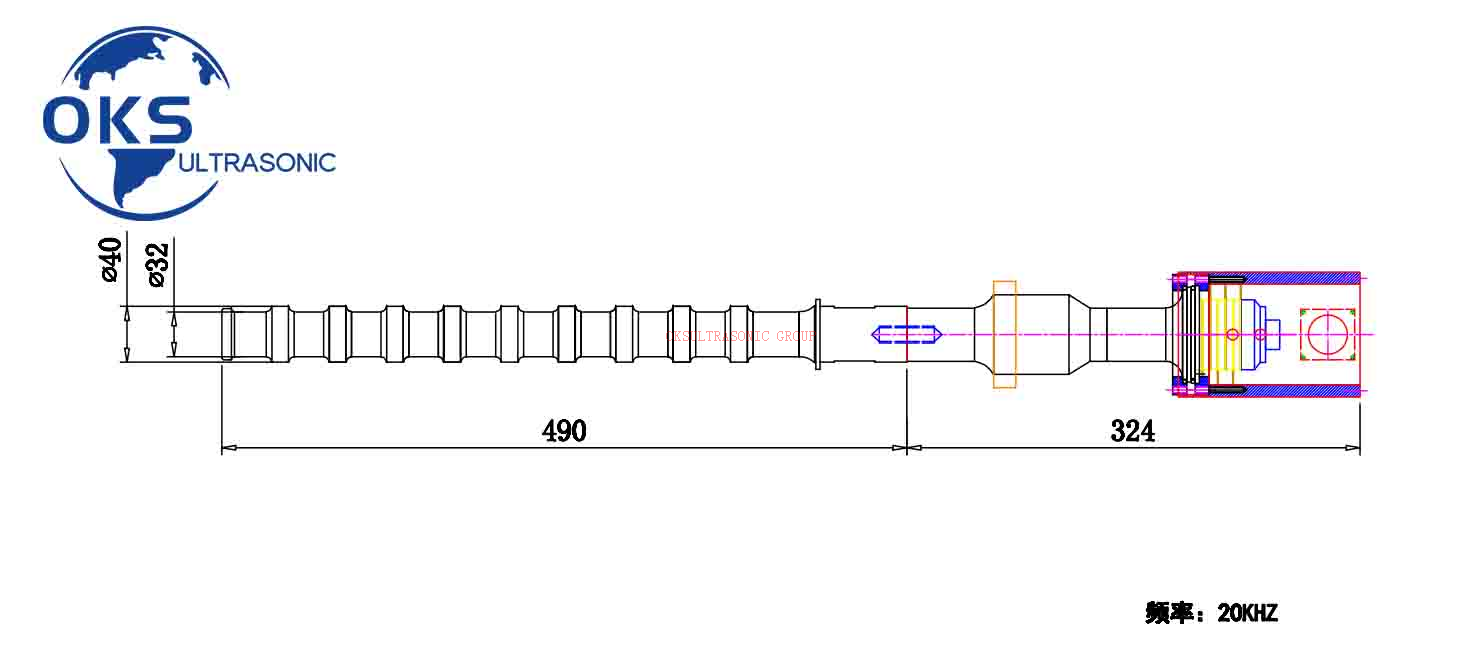
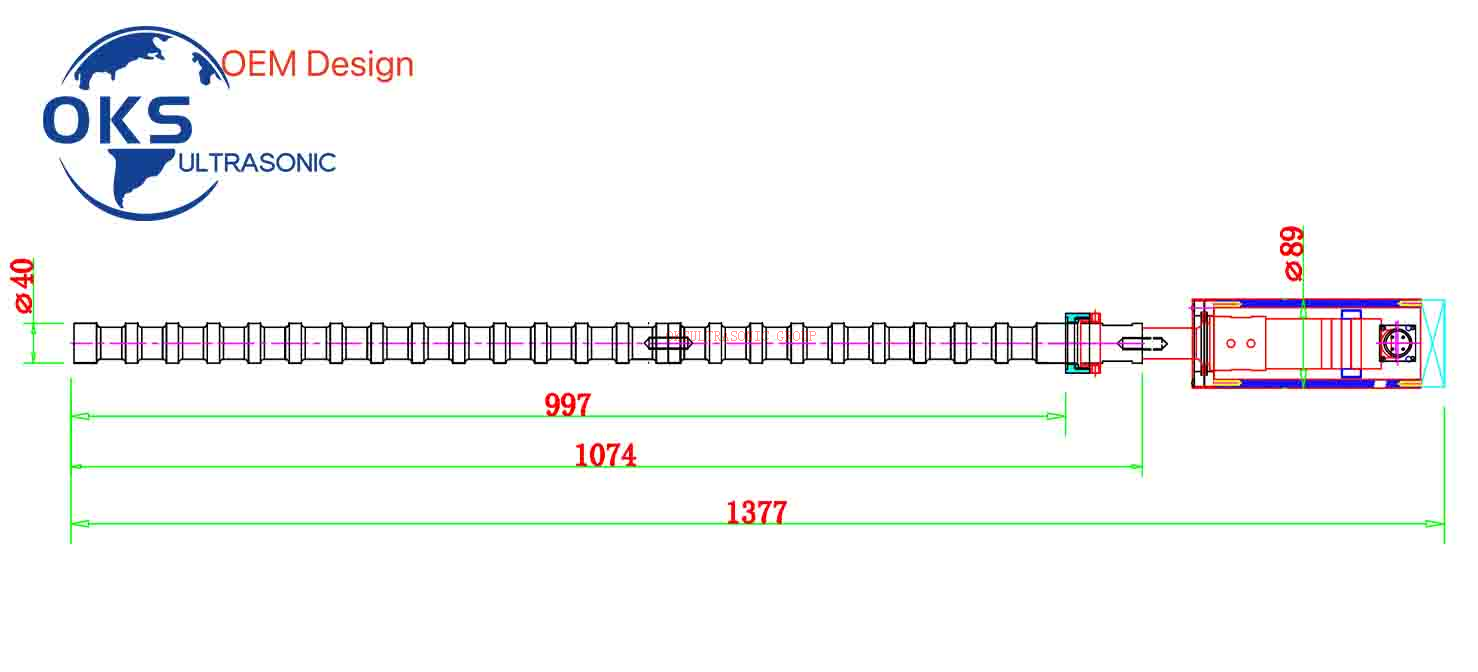
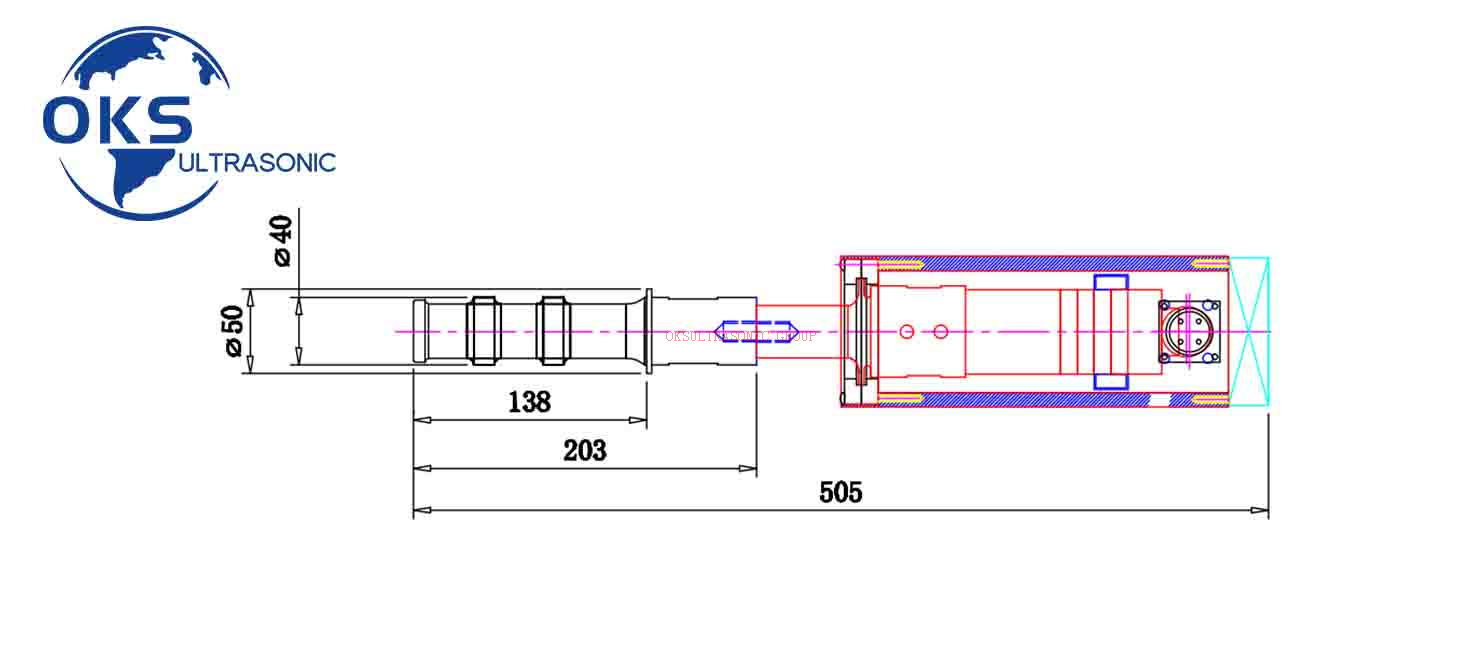
PACKING
